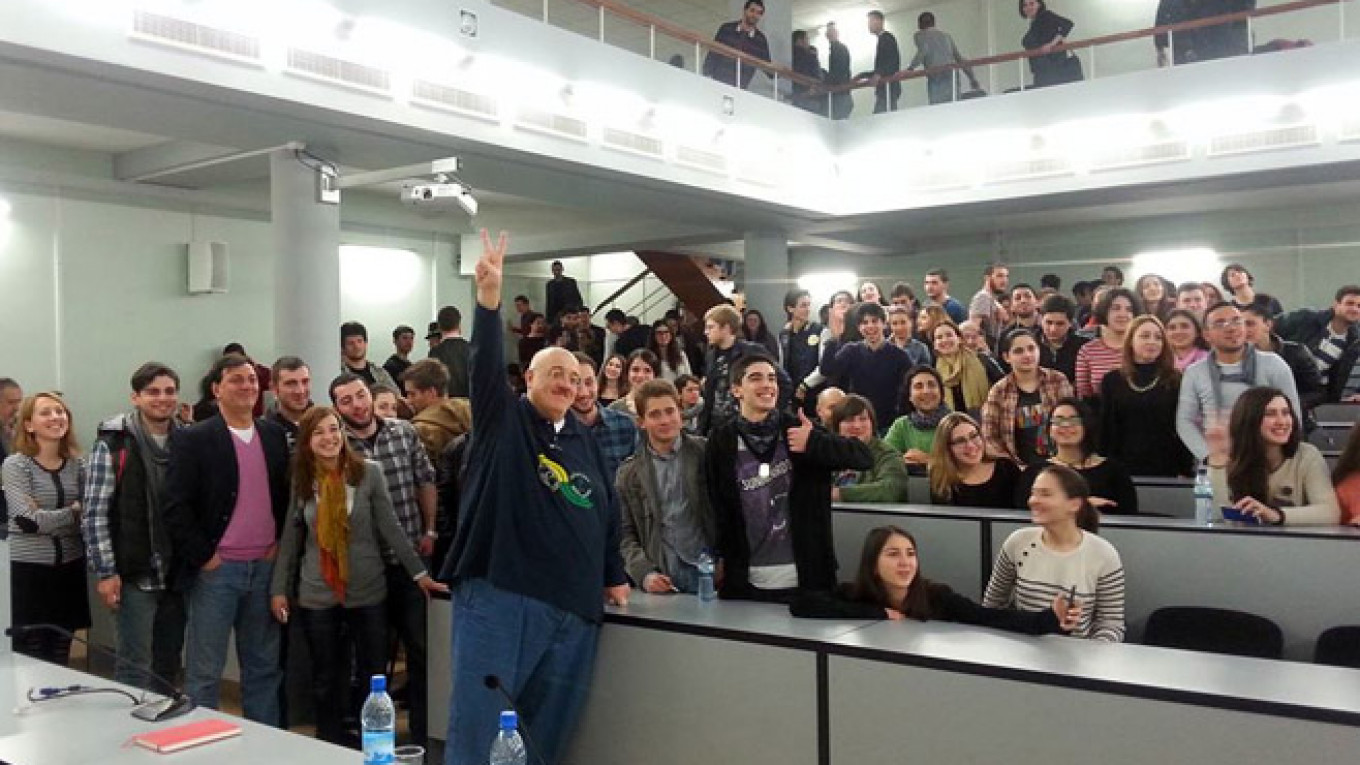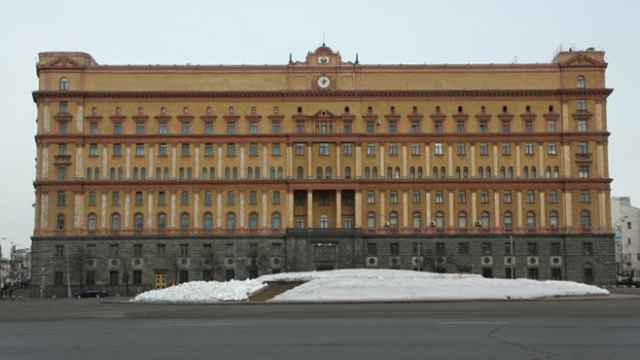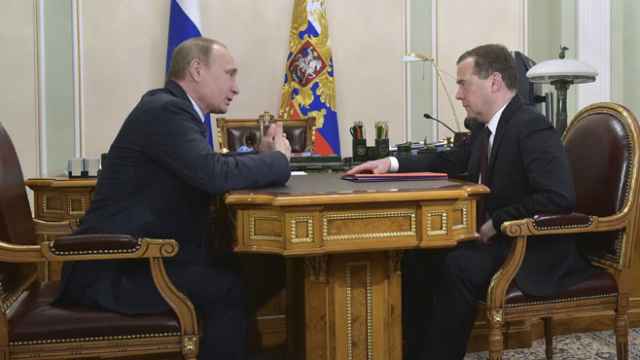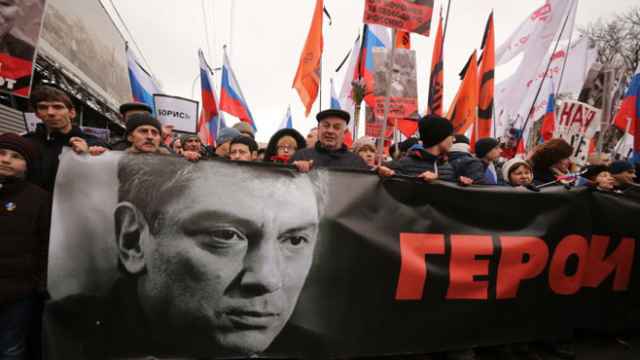An interview that Vladimir Fedorin conducted with Kakha Bendukidze was published in Kiev in Ukrainian, with the Russian translation to appear shortly. As the former deputy editor of both Vedomosti and Smart Money as well as the founding editor of Forbes Ukraine, Fedorin has vast experience as an interviewer. Bendukidze was a major Russian industrialist in the 1990s that moved to Georgia in 2004 to become a government minister in charge of coordinating economic reforms. In 2014 he served as an adviser to the new administration in Kiev and was a vocal advocate of liberal reforms there.
Bendukidze's counsel was considered particularly valuable. His extreme liberalism — Kakha was happy to privatize everything but scruples — is based on his own experience as an entrepreneur. But most importantly, he was able to carry out real and meaningful liberalization in his capacity as Georgian minister in charge of reforms.
You might wonder what could be easier than liberalizing something. It would seem that it is easier to cancel, simplify or eliminate than to introduce new rules and to build new institutions — and opponents of reforms skillfully exploit this myth.
However, that is not the case. In fact, the new licensing requirements, additional restrictions on business and various trade barriers all sprout up spontaneously like so many weeds and do not require any particular effort from politicians. But eliminating unnecessary licensing requirements, removing restrictions and dismantling trade barriers requires economic competence and political willpower.
The reason is simple: Trade barriers benefit business owners and the officials whom they convince to put them in place, while the economic losses resulting from those barriers are distributed in tiny increments to every Russian consumer.
One of the most impressive economic reforms implemented in Georgia was the abolition of the requirement for certification of products that already had corresponding certification from the United States or the European Union. Two groups stand to lose from such reform — first, those for whom the certification process is a business and, secondly, domestic manufacturers that have a competitive advantage in needing only one certification rather than two or more.
Consumers are the ones who gain from such reform, a group several million times larger than those who stand to lose. The policy enables consumers to pay less for goods in the affected markets. And that means they can spend the savings to buy more of not only on those particular goods, but goods in all sectors.
Implementing that reform was difficult in Georgia. In Ukraine — a country with more enterprises protected by various trade barriers and more government officials profiting from the system — it is practically impossible. What, then, can be said for the chances of such reforms in Russia, a country even more in need of eliminating unnecessary regulation and trade barriers in all facets of business?
Bendukidze had the additional virtue of eloquence: not every reformer can explain what he does and why he does it so clearly and colorfully. Hopefully, we will not have long to wait for the Russian version of the interview. After all, the Ukrainian journalist interviewed the Georgian reformer in Russian.
Konstantin Sonin, a columnist for Vedomosti, is professor of economics at the Higher School of Economics in Moscow.
A Message from The Moscow Times:
Dear readers,
We are facing unprecedented challenges. Russia's Prosecutor General's Office has designated The Moscow Times as an "undesirable" organization, criminalizing our work and putting our staff at risk of prosecution. This follows our earlier unjust labeling as a "foreign agent."
These actions are direct attempts to silence independent journalism in Russia. The authorities claim our work "discredits the decisions of the Russian leadership." We see things differently: we strive to provide accurate, unbiased reporting on Russia.
We, the journalists of The Moscow Times, refuse to be silenced. But to continue our work, we need your help.
Your support, no matter how small, makes a world of difference. If you can, please support us monthly starting from just $2. It's quick to set up, and every contribution makes a significant impact.
By supporting The Moscow Times, you're defending open, independent journalism in the face of repression. Thank you for standing with us.
Remind me later.






